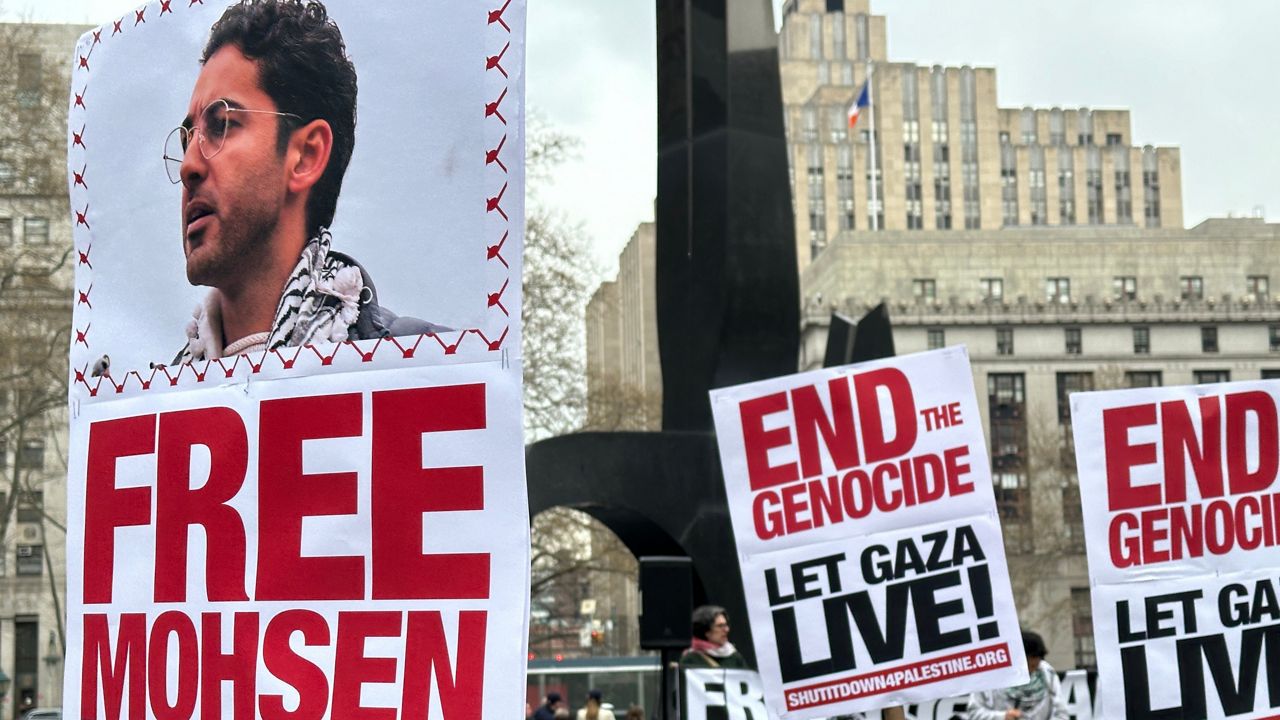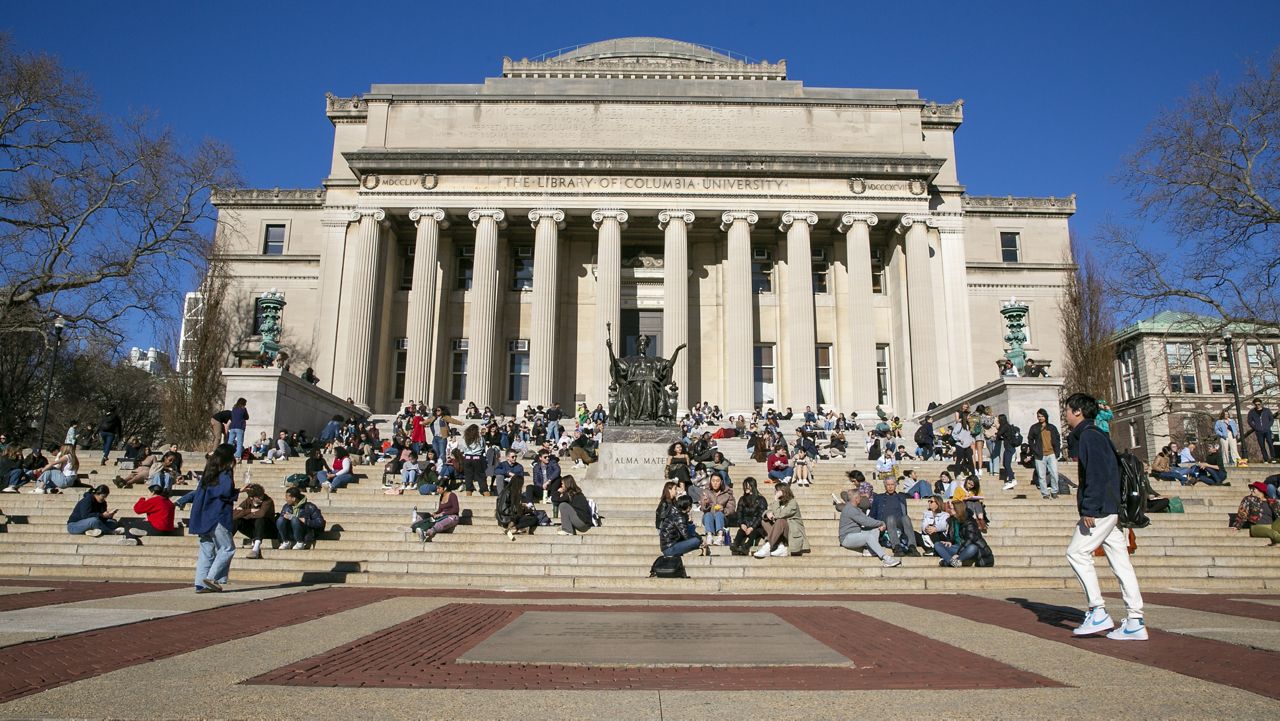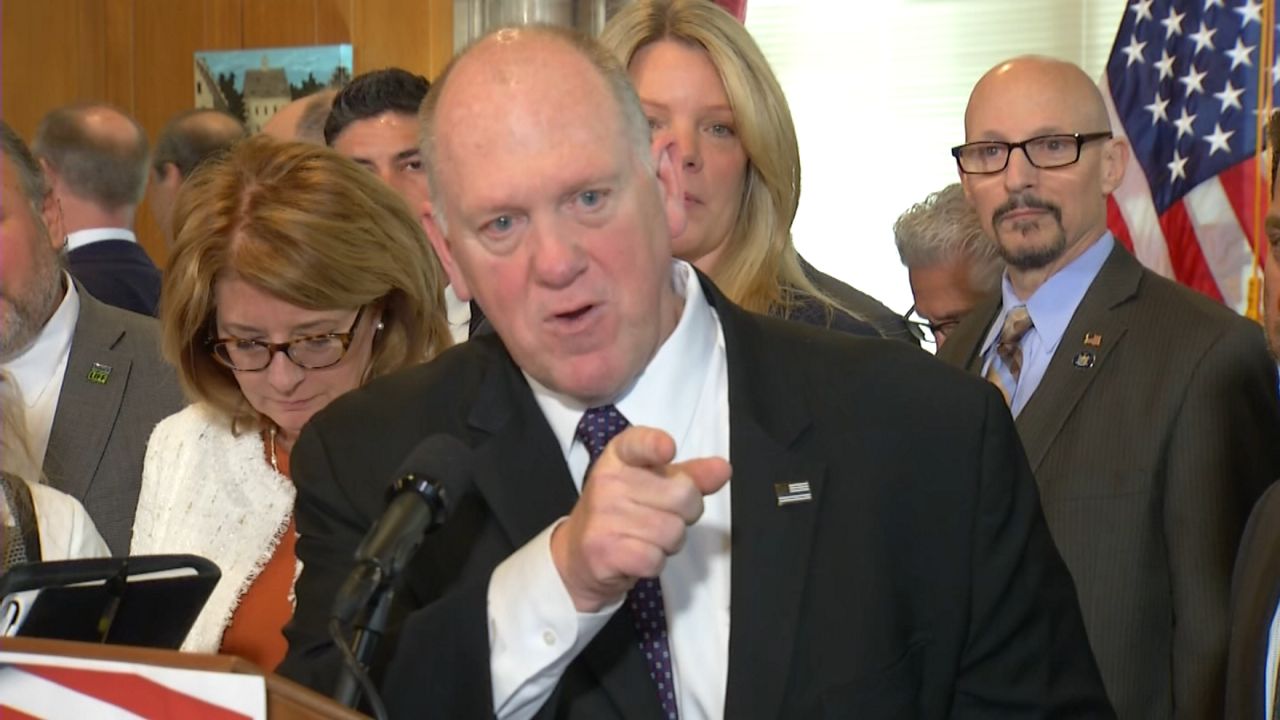The city settled a court case involving the city’s right-to-shelter law Friday. The right-to-shelter requires the city to provide a bed to anyone in need.
Mayor Eric Adams and his administration challenged the longstanding ruling amid the migrant crisis.
“The right-to-shelter was never meant to apply to large-scale migrant populations arriving without housing or legal work status,” Adams said last week in a video message.
The settlement only applies to single adult migrants who will now only have 30-days in shelter. Those under 23-years-old will get 60-day shelter notices.
In order to keep with the tight deadlines, the city will now be required to provide intensive case management. While migrants will be obligated to “make significant efforts to resettle.”
“They are locking the city into actually providing a substantial amount of support to get people out of the shelters. That is not something the city was bound to do before,” Liza Schwartzwalkd, director of economic justice and family empowerment at the New York Immigration Coalition, said.
City officials will grant extensions but migrants will have to meet the conditions of an “extenuating circumstance.”
Examples of an extenuating circumstance are having housing lined up but needing more time to move, having an upcoming immigration court hearing or recovering from a serious medical procedure.
These decisions will be made on a case-by-case basis by city officials.
“That is where the real risk is for a lot of these folks to end up potentially on the streets as opposed to in the shelter system,” Schwartzwald said.
Some housing advocates see the settlement as a creative solution to a larger problem.
“With the massive influx, what you have to do is find creative ways to be able to ensure that they are able to get housed, and then at the same time you know sheltered, but at the same time ensure that we're not overwhelming the already overburdened shelter system,” Shams Dabaron, a housing advocate, said.
City officials will be required to provide weekly reports on new arrivals, migrants exiting shelters and those in care. The city must also designate a liaison who will be required to respond to questions about denials.
“Another piece of this settlement is actually that they are required to have enough staff to actually do some of the things that they are committed to doing here. So, whether that actually happens, I think, is going to be a challenge,” Schwartzwald said.
Mayor Adams and his top officials have partly blamed the city’s fiscal straits on the crisis.
In February, Adams cancelled a 5% round of budget cuts amid a decrease in migrant spending of 10% or $586 million.









